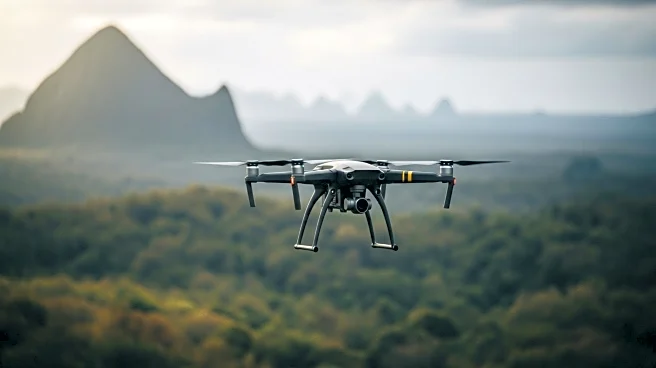What's Happening?
Drones have captured rare images of isolated communities in the Amazon and Indian Ocean, sparking debates about privacy and protection. These communities, living without modern technology, face threats from deforestation, illegal land grabs, and disease exposure. The use of drones offers a way to monitor these groups without direct contact, but raises ethical questions about intrusion and the potential impact on their autonomy and health.
Why It's Important?
The use of drone technology to observe isolated communities highlights the balance between technological advancement and ethical responsibility. While drones provide valuable data for conservation and protection efforts, they also risk infringing on the privacy and autonomy of these communities. The images can aid in monitoring environmental threats, but they also pose challenges in ensuring that the technology does not lead to exploitation or harm. This development underscores the need for guidelines and policies to govern the use of drones in sensitive areas.
Beyond the Headlines
The ethical implications of using drones to monitor isolated communities extend to broader discussions about the role of technology in conservation and human rights. The debate touches on the responsibility of governments and organizations to protect vulnerable populations while respecting their sovereignty. It also raises questions about the potential for technology to both aid and disrupt traditional ways of life, highlighting the need for careful consideration of the long-term impacts of surveillance and documentation.











